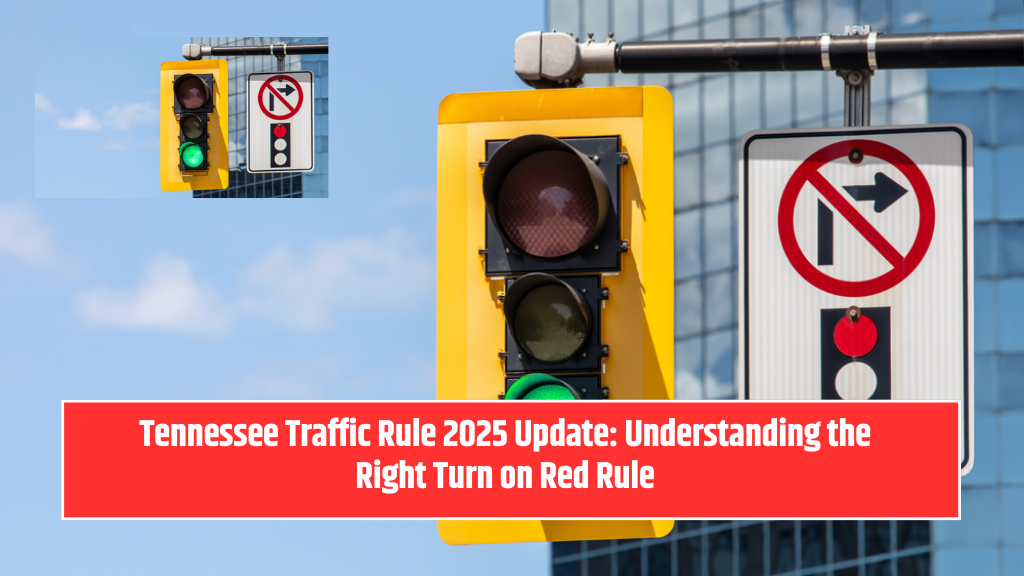Whether you live in Tennessee or are just visiting, it’s very important to understand the traffic rules. Some laws have changed over time, while others are often misunderstood. This guide will explain seven key traffic rules in Tennessee that every driver should know. Knowing these rules can help keep you safe on the road and avoid fines.
Right Turn on Red
In Tennessee, you can turn right at a red traffic light unless there’s a sign that clearly says “No Right Turn on Red.” But before turning, you must come to a complete stop. Look both ways for cars, bikes, or pedestrians, and turn only when it’s completely safe.
Funeral Processions
Many people believe that you must pull over for a funeral procession, but this is not required by state law. However, in small towns and rural areas, people often do this out of respect. If a funeral procession starts legally through an intersection or at a stop sign, other cars in the line can follow—even if the light turns red—because they have the right-of-way. Drivers should never try to cut in or pass a funeral procession on a two-lane road.
Phone Use While Driving
Tennessee has strict rules about phone use when driving. You are not allowed to text or even read a text while driving. Making phone calls using your hands is allowed in most areas, but not in active school zones. In those zones, you can only talk using Bluetooth or other hands-free options.
Seat Belt Rule
Wearing seat belts is a must for all drivers and front-seat passengers. Adults in the back seat are not required by law to wear seat belts, but doing so can prevent serious injuries. Tennessee is a “primary seat belt” state, which means a police officer can stop you just for not wearing a seat belt, even if you didn’t break any other traffic rule. Also, drivers can be fined if a child passenger is not wearing a seat belt or properly restrained.
Move Over Law
If you see an emergency vehicle—like an ambulance or fire truck—coming your way, you must move to the side of the road. If there’s a shoulder, pull over there. If not, pull to the right side as much as possible. Stay stopped until the vehicle has passed. Also, be extra careful when driving near intersections, as other emergency vehicles might be on the way.
DUI (Drunk Driving)
Driving after drinking alcohol is very risky and illegal. In Tennessee, if your Blood Alcohol Concentration (BAC) is 0.08% or more, you are considered drunk. If caught, you could face a fine between $350 and $1,500, spend at least 48 hours in jail, and lose your license for one year. These penalties apply for first-time offenders. If someone has a higher BAC, or there are children in the car, the punishment will be even more serious.
Open Container Law
An “open container” means any bottle or can of alcohol that has been opened. In Tennessee, drivers are not allowed to have open containers while the engine is on. Passengers, however, can have open containers, as long as local laws don’t say otherwise. It’s always best to keep any alcohol in the trunk or a closed glove box, and check the rules in the area you’re driving.
Understanding these traffic laws can help you stay safe and avoid trouble with the law while driving in Tennessee. Whether it’s wearing your seat belt, avoiding phone use, or giving way to emergency vehicles, each rule plays a role in keeping the roads safe for everyone. And remember, even if something isn’t required by law—like pulling over for a funeral procession—being respectful and cautious is always a good choice. Driving responsibly not only protects you but also those around you.














